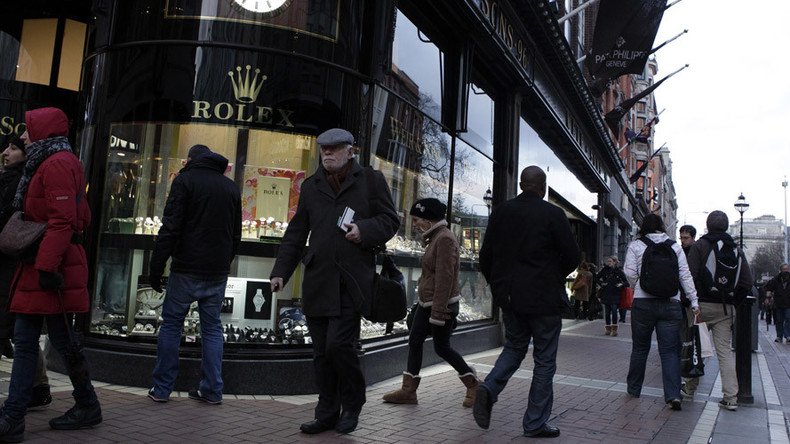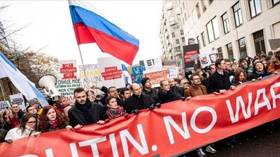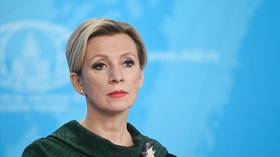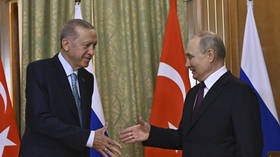Luck o’ the Irish, or a Celtic commitment to austerity?

Ireland’s economy is roaring back. Despite a property crash and a Merkel-engineered troika bailout to rescue her bankers, the imminent general election takes place against an economy few dreamt possible in 2010.
‘Austerity in action’ vs. ‘austerity inaction’
Just one small space between the words but the meanings are worlds apart. That space represents the world’s economic situation at the moment.
‘Austerity in action’ is the watchword of a few, mostly small nations, who have swallowed horribly bitter medicine - and progressed. Meanwhile, closer to the Mediterranean, “austerity inaction” has been the order of the day, where nations hover close to bankruptcy, with vast unemployment and sustainable growth ostensibly extinct... but still they assiduously ignore the prescription.
One previous peak of the ongoing, festering (check these columns for another outbreak soon) Euro crisis, was the memorable remark by then Luxembourg PM Jean-Claude Juncker “We heads of government all know what to do, we just don't know how to get reelected when we do it!”
That perception might require revision, as Irish PM Enda Kenny has called a general election. His government has overseen precisely the rigorous action Juncker and similar political pygmies cannot stomach. As leading UK political blogger Guido Fawkes has noted: “Enda is about to test the idea that in fact you can cut spending, cut the deficit, keep taxes low and get re-elected... "
Despite five years of austerity, Kenny’s Fine Gael party is leading in the polls. True, the coalition with Labour may not retain an overall majority, but anything short of a wipeout for the government will be a remarkable demonstration that pragmatic voters - unlike so many politicians - comprehend dangerous debt economics!
The citizens of Ireland have demonstrated true grit with their remarkable economic comeback following the property bubble burst. While the Mediterranean nations endure a lost decade, Enda Kenny’s government has reduced government debt from a post bailout peak of 123.2 percent of GDP in 2013 to below 100 percent. Much remains to be done, but the Irish have steadfastly followed the Baltic States, demonstrating that economic rejuvenation works whereas stasis induces economic atrophy.
Perhaps most strikingly, Irish unemployment - which peaked at 15.1 percent in 2012 - had almost halved by January to 8.6 percent. That is fully 2 percent below France; little more than a third of Greece’s 24.5 percent. Ireland has bounced back thanks to being an open, dynamic economy and not a semi-closed one like too many EU nations who maintain a touching belief in the fairytale magic money tree school of economics.
Ireland’s 8th in the Heritage Foundation index of economic freedom reflects persistent diligence developing a job creating, open economy for start-ups and large entities alike. By comparison, France ranks a dismal 75th, Italy a pitiful 86th and Greece is a wretched 138th (Even industrial Germany ranks only 17th, significantly trailing the Celtic commitment to growth, enterprise and employment). Hence, Ireland grew above government forecasts at 7 percent in Q3 2015 while the stagnant Eurozone saw growth decline to an anemic 0.3 percent.
And thus we reach the point where Ireland is most exposed… True, there may be worse economic news from China. Indeed, the oil inversion may yet have ramifications akin to the aftershocks of an earthquake, but clearly the biggest risk to Ireland’s economy right now remains its EU neighbors.
Beyond the Baltic States and coherent government in Malta, resolve for reform is conspicuously absent. Hence the EU festers in an abyss of austerity inaction. Debt-binging big government strangling innovation remains the defining hallmarks of the EU’s Kickcanistan democracies.
After some incredible endurance, including mass emigration and much hardship, the Irish citizens have pulled their economy round. The consensus amongst the traditional governing parties of Fianna Fail, Fine Gael and Labour, endorsing a core growth agenda has been central to Ireland’s fabulous growth over 30 years, propelling it from European backwater to a cosmopolitan, bustling globalized economy which, despite a near death experience has bounced back strongly.
Will this recovery be enough to see the Fine Gael / Labour coalition returned to office? The general election campaign will be an acid test for Fianna Fail (who oversaw the daft bank bailout which sank the ‘Celtic tiger’). Can they to bounce back, after a deserved drubbing in February 2011, losing 51 of 77 seats? Moreover, it will be a challenge for the unreformed Marxists of Sinn Fein, the political wing of the IRA terrorist movement (nowadays perceived to be broadly at peace). Sinn Fein enjoyed a blip to lead the polls during the darker days of recession and may double their previous 10 percent vote share. That could lead to a (prickly, given their anti-growth economic illiteracy) influence on government.
Not for the first time in its history, Ireland is at a crossroads. A coalition of citizens and government has righted the good ship, Hibernia. Now the problem remains that many larger vessels in the Euro harbor are listing after storms and prone to sinking at the slightest tidal ripple.
The statements, views and opinions expressed in this column are solely those of the author and do not necessarily represent those of RT.














